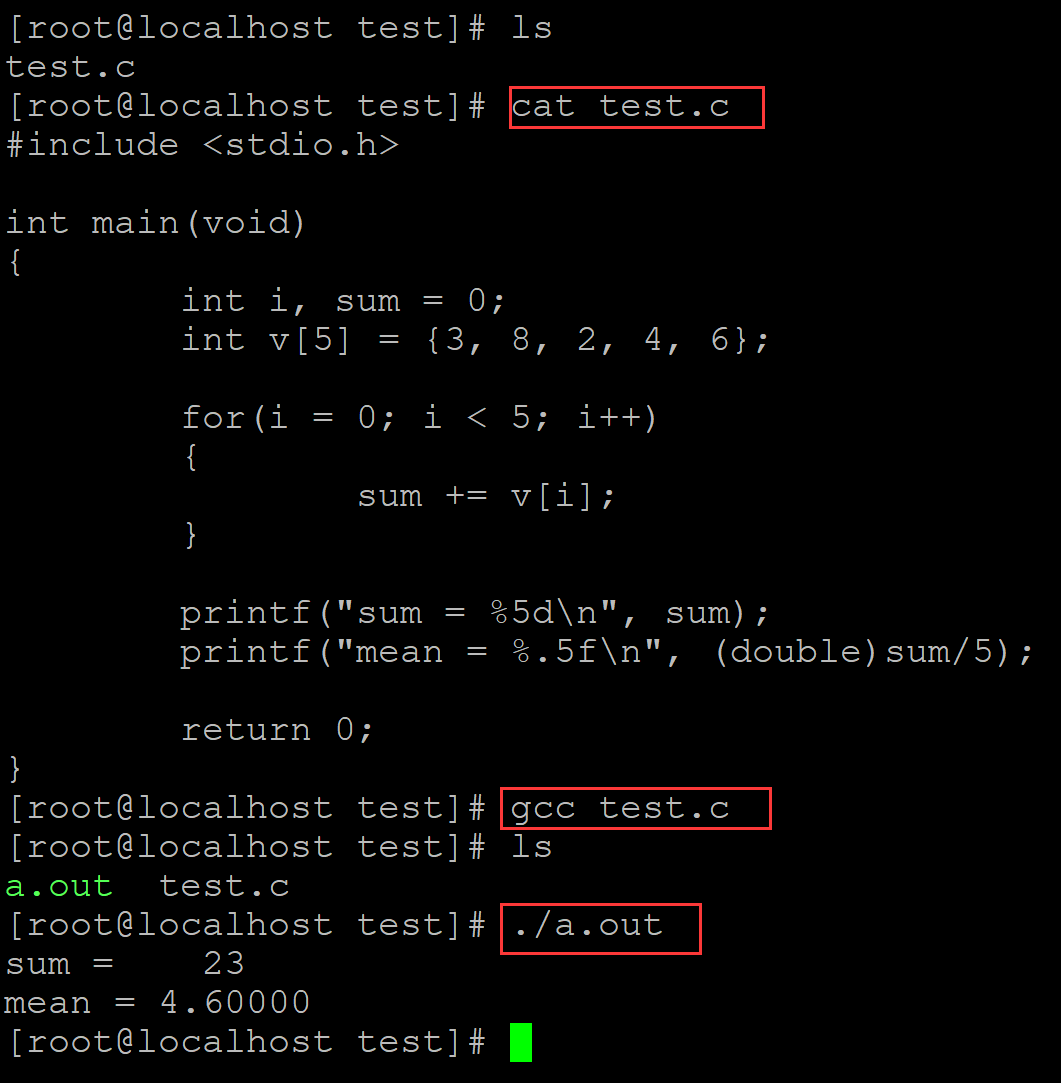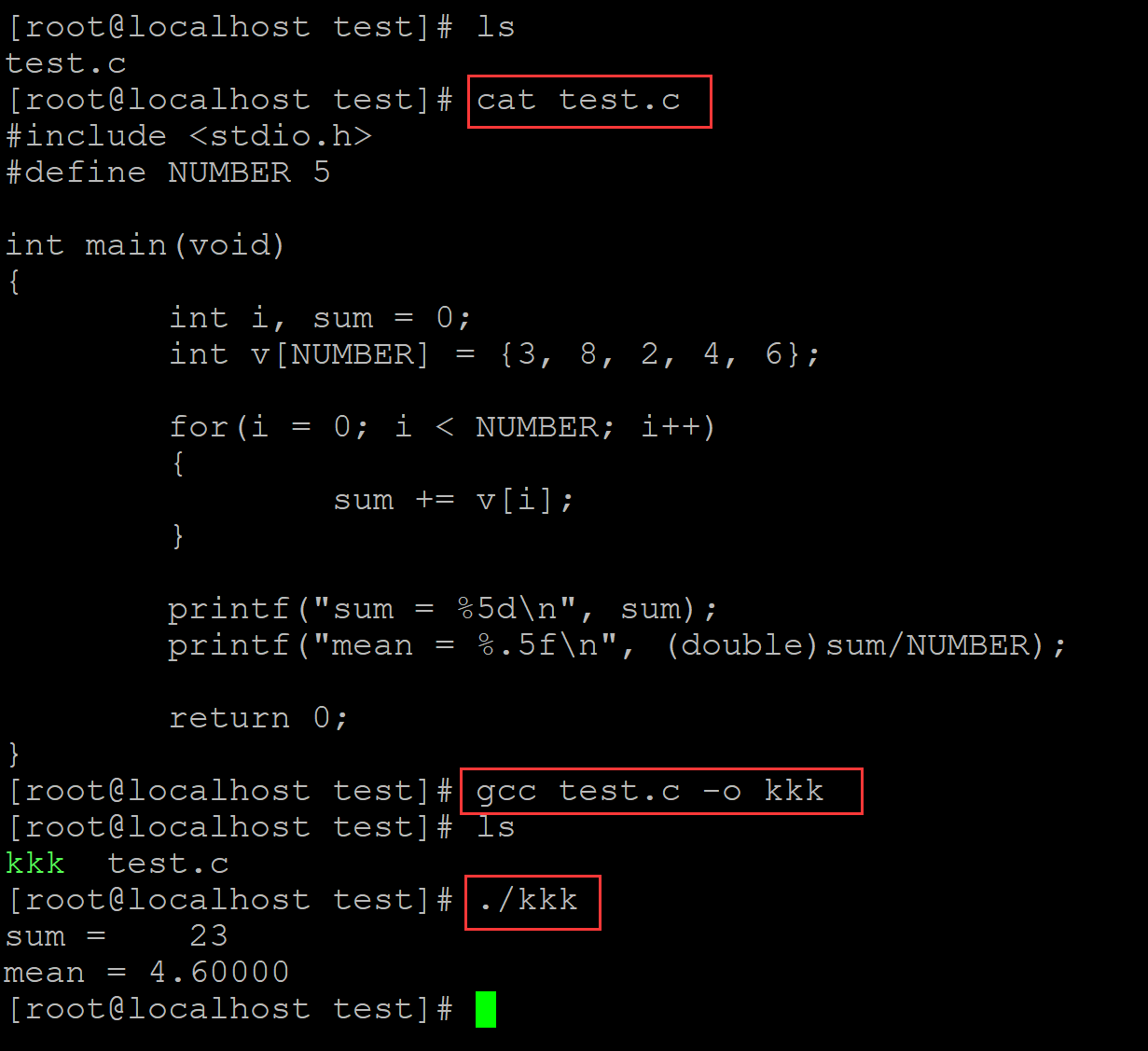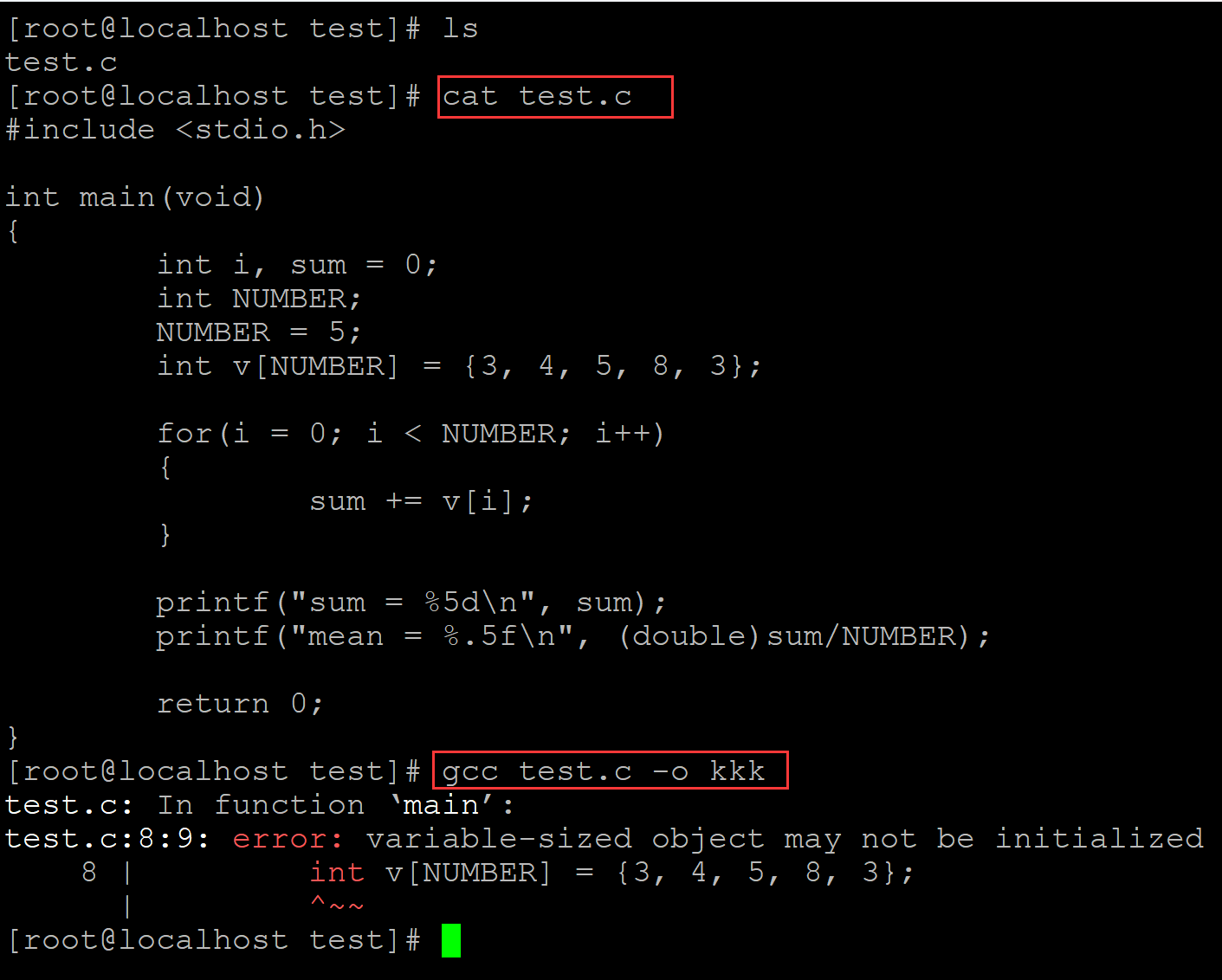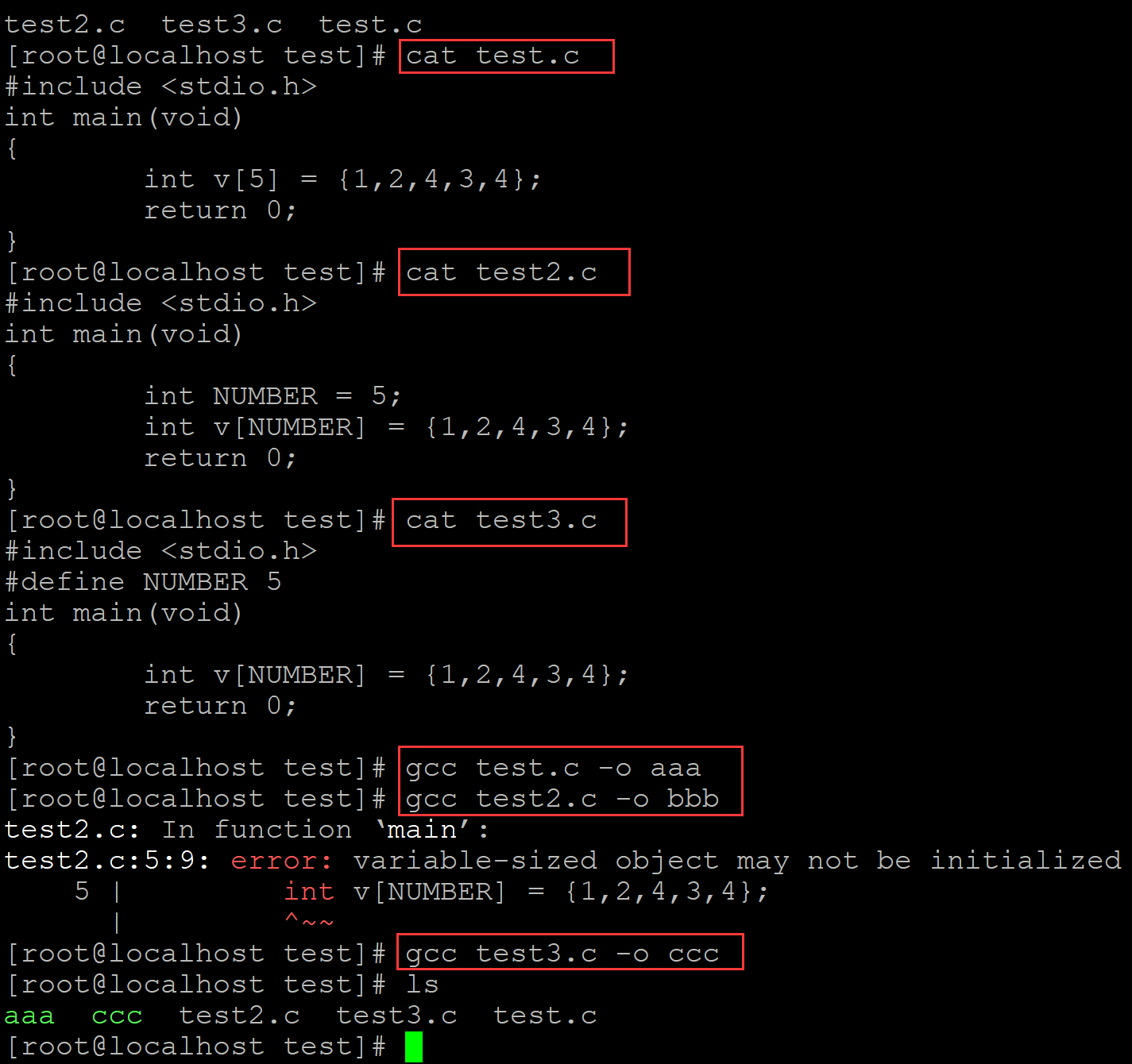C语言中对象式宏
001、不使用对象式宏
[root@localhost test]# ls test.c [root@localhost test]# cat test.c ## 测试程序 #include <stdio.h> int main(void) { int i, sum = 0; int v[5] = {3, 8, 2, 4, 6}; ## 定义int【5】 型数组 for(i = 0; i < 5; i++) { sum += v[i]; } printf("sum = %5d\n", sum); printf("mean = %.5f\n", (double)sum/5); ## 求和和均值 return 0; } [root@localhost test]# gcc test.c ## 编译 [root@localhost test]# ls a.out test.c [root@localhost test]# ./a.out ## 执行程序 sum = 23 mean = 4.60000

002、使用对象式宏
[root@localhost test]# ls test.c [root@localhost test]# cat test.c ## 测试程序 #include <stdio.h> #define NUMBER 5 // 定义对象式宏 int main(void) { int i, sum = 0; int v[NUMBER] = {3, 8, 2, 4, 6}; //在程序中使用NUMBER宏 for(i = 0; i < NUMBER; i++) { sum += v[i]; } printf("sum = %5d\n", sum); printf("mean = %.5f\n", (double)sum/NUMBER); return 0; } [root@localhost test]# gcc test.c -o kkk ## 编译程序 [root@localhost test]# ls kkk test.c [root@localhost test]# ./kkk sum = 23 mean = 4.60000

。
对象式宏不就是个变量替换嘛?
003、替代方法
[root@localhost test]# ls test.c [root@localhost test]# cat test.c ## 测试程序 #include <stdio.h> int main(void) { int i, sum = 0; int NUMBER; NUMBER = 5; int v[NUMBER] = {3, 4, 5, 8, 3}; // 数组数量用变量无法进行初始化,为什么? 此处必须使用对象式宏, 优势? for(i = 0; i < NUMBER; i++) { sum += v[i]; } printf("sum = %5d\n", sum); printf("mean = %.5f\n", (double)sum/NUMBER); return 0; } [root@localhost test]# gcc test.c -o kkk ## 无法正常编译 test.c: In function ‘main’: test.c:8:9: error: variable-sized object may not be initialized 8 | int v[NUMBER] = {3, 4, 5, 8, 3}; | ^~~

。
004、测试
[root@localhost test]# ls ## 三个测试程序 test2.c test3.c test.c [root@localhost test]# cat test.c ## 程序1 #include <stdio.h> int main(void) { int v[5] = {1,2,4,3,4}; return 0; } [root@localhost test]# cat test2.c ## 程序2 #include <stdio.h> int main(void) { int NUMBER = 5; int v[NUMBER] = {1,2,4,3,4}; return 0; } [root@localhost test]# cat test3.c ## 程序3 #include <stdio.h> #define NUMBER 5 int main(void) { int v[NUMBER] = {1,2,4,3,4}; return 0; } [root@localhost test]# gcc test.c -o aaa [root@localhost test]# gcc test2.c -o bbb ## 只有程序2无法正常编译,变量初始化数组造成的? 这是对象式宏存在的原因? test2.c: In function ‘main’: test2.c:5:9: error: variable-sized object may not be initialized 5 | int v[NUMBER] = {1,2,4,3,4}; | ^~~ [root@localhost test]# gcc test3.c -o ccc [root@localhost test]# ls aaa ccc test2.c test3.c test.c

。
分类:
c/c++







【推荐】国内首个AI IDE,深度理解中文开发场景,立即下载体验Trae
【推荐】编程新体验,更懂你的AI,立即体验豆包MarsCode编程助手
【推荐】抖音旗下AI助手豆包,你的智能百科全书,全免费不限次数
【推荐】轻量又高性能的 SSH 工具 IShell:AI 加持,快人一步
· 无需6万激活码!GitHub神秘组织3小时极速复刻Manus,手把手教你使用OpenManus搭建本
· C#/.NET/.NET Core优秀项目和框架2025年2月简报
· Manus爆火,是硬核还是营销?
· 终于写完轮子一部分:tcp代理 了,记录一下
· 【杭电多校比赛记录】2025“钉耙编程”中国大学生算法设计春季联赛(1)
2023-10-04 linux 中设置用户间针对单一目录的权限
2023-10-04 python 中map函数
2023-10-04 samtools线程数对 sam文件转换为bam文件效率的影响
2023-10-04 bwa 线程数目对比对速度的影响
2023-10-04 python 中 re模块
2021-10-04 文本文件和二进制文件有什么区别?
2020-10-04 R语言中duplicated函数:去重复,取重复